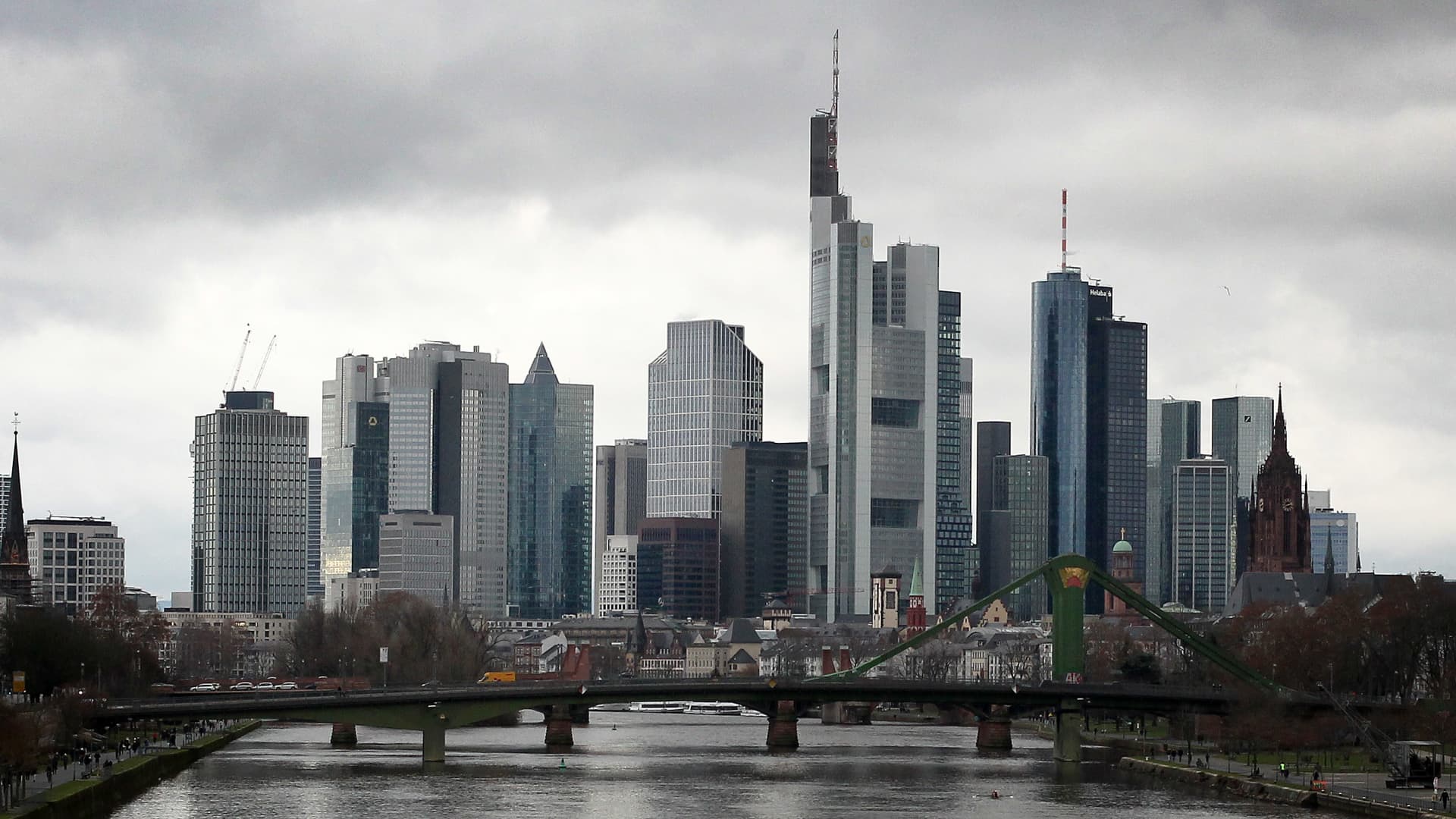The German economy stagnated in the second quarter of 2023, following a winter recession, with zero growth and a contraction in adjusted GDP, according to data from the statistics office.
Germany, once hailed as Europe's economic powerhouse, is now facing structural problems and could be on the verge of decline, according to experts, with factors such as stagnant GDP, high inflation, an aging population, overdependence on exports, and underinvestment contributing to its current predicament.
Germany is predicted to experience a prolonged recession this year, making it the only major European economy to contract in 2023, according to the European Commission, with its growth expectations also being cut for 2024; this is attributed to struggles following Russia's invasion of Ukraine and the need to end energy dependency on Moscow.
The European Commission has revised down its economic forecast, citing high prices for goods and services as a significant factor, leading to reduced growth projections for the European Union and the eurozone. Germany is expected to experience a downturn, while inflation is projected to exceed the European Central Bank's target. Weak consumption, credit provisions, and natural disasters are also contributing to the loss of momentum in the economy. However, the report highlights the strength of the EU labor market with a low unemployment rate.
Germany's deep economic troubles, including three consecutive quarters of negative growth, could have significant global implications, especially considering its role as the main driver of economic growth in the euro zone and its high exposure to the Chinese economy.
Germany is facing an economic contraction due to challenges in the manufacturing sector, a disappointing China reopening boost, and higher energy costs, leading to a recession in Europe's largest economy. However, there are still some positive aspects, such as opportunities in Germany's small and mid-sized companies.
Germany, once known for its economic success, is now the worst-performing major developed economy, facing challenges such as high energy costs, the loss of cheap Russian natural gas, and a slowdown in key trade partner China, which have exposed cracks in the country's foundation and sparked debate about the way forward.
Deutsche Bank CEO Christian Sewing warns that Germany will become the "sick man of Europe" if it doesn't address its structural issues, including high energy costs, slow internet connections, outdated rail networks, digitalization backlogs, and a lack of skilled workers.
